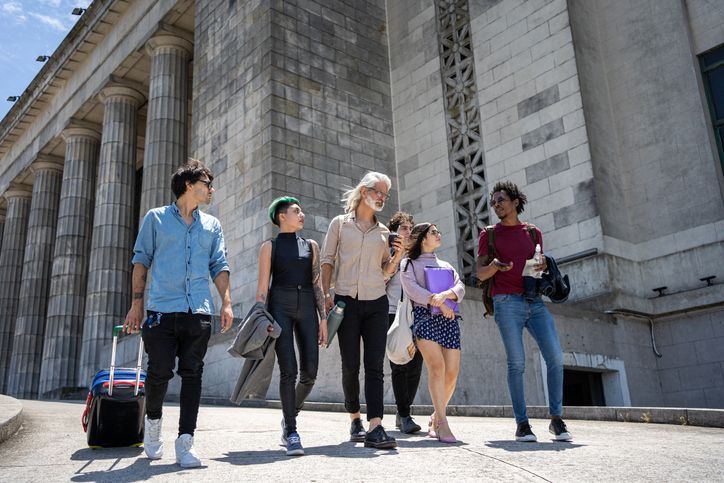This page is licensed under Creative Commons under Attribution 4.0 International. Anyone can share content from this page, with attribution and link to College MatchPoint requested.
10 Colleges with Unexpected Cultural and Historical Connections
When considering colleges and universities, the focus often centers on academic programs, campus life, and athletic achievements. However, many institutions have fascinating and often unexpected historical connections that add layers of depth to their identities. From schools with ties to significant social movements to those with unique cultural legacies, these institutions offer more than just education—they are living embodiments of history, tradition, and change.

This list highlights ten colleges and universities across the United States that possess such unexpected historical connections. Whether it's a commitment to civil rights, a unique architectural heritage, or a deep involvement in significant cultural movements, these schools offer students not only an education but also a profound connection to pivotal moments in history. As you explore these institutions, you may find that their pasts enrich the academic experience in ways that go beyond the classroom.
1. Hampton University (Hampton, Virginia)
- Unexpected Connection: Hampton University is home to the Emancipation Oak, where the first Southern reading of the Emancipation Proclamation took place. This university, originally established to educate freed slaves, has a strong connection to the early efforts in African American education post-Civil War.
2. Howard University (Washington, D.C.)
- Unexpected Connection: Howard University, one of the most prestigious HBCUs, has a rich history tied to the civil rights movement and the education of African American leaders. It was also the site where the first African American Supreme Court Justice, Thurgood Marshall, studied law, making it a key institution in the fight for civil rights.
3. University of Hawaii at Manoa (Honolulu, Hawaii)
- Unexpected Connection: The university is deeply connected to the preservation and revitalization of the Hawaiian language and culture, playing a pivotal role in the Hawaiian Renaissance movement, which began in the 1970s.
4. Texas Southern University (Houston, Texas)
- Unexpected Connection: Established in 1927 as a historically Black college, Texas Southern has a rich history tied to the Civil Rights Movement. The university’s law school was established as part of a strategy to prevent integration at the University of Texas, leading to significant legal battles that influenced desegregation.
5. College of Charleston (Charleston, South Carolina)
- Unexpected Connection: As one of the oldest educational institutions in the U.S., the College of Charleston is intertwined with the history of Charleston, a key city in the Atlantic slave trade. The college’s history is marked by its connections to slavery and its ongoing efforts to address this legacy.
6. Gallaudet University (Washington, D.C.)
- Unexpected Connection: Gallaudet University is the only university in the world designed specifically for deaf and hard-of-hearing students. Its unexpected historical connection lies in its role as the epicenter of the Deaf President Now movement in 1988, a pivotal event in the civil rights movement for deaf individuals.
7. Hillsdale College (Hillsdale, Michigan)
- Unexpected Connection: Hillsdale College is known for its conservative values and commitment to a classical liberal arts education. It was the first American college to prohibit any discrimination based on race, sex, or religion in its charter. The college is also notable for refusing federal and state funding, a stance rooted in its principles of independence and limited government.
8. University of Texas at El Paso (El Paso, Texas)
- Unexpected Connection: UTEP’s campus architecture is inspired by Bhutanese design, a unique choice influenced by a visit from the King of Bhutan in the 1900s. This unexpected connection to Bhutanese culture makes UTEP’s campus one of the most distinctive in the U.S.
9. California State University, Los Angeles (Los Angeles, California)
- Unexpected Connection: CSULA has a strong connection to Latino history and activism, particularly through the Chicano Studies movement. The university has been a central hub for Latino civil rights efforts in California, including student-led protests for educational equity and social justice.
10. Antioch College (Yellow Springs, Ohio)
- Unexpected Connection: Founded in 1850, Antioch College was one of the first colleges in the United States to admit both women and African Americans on an equal basis with white men. The college’s radical commitment to social justice and equality was inspired by its first president, Horace Mann.


